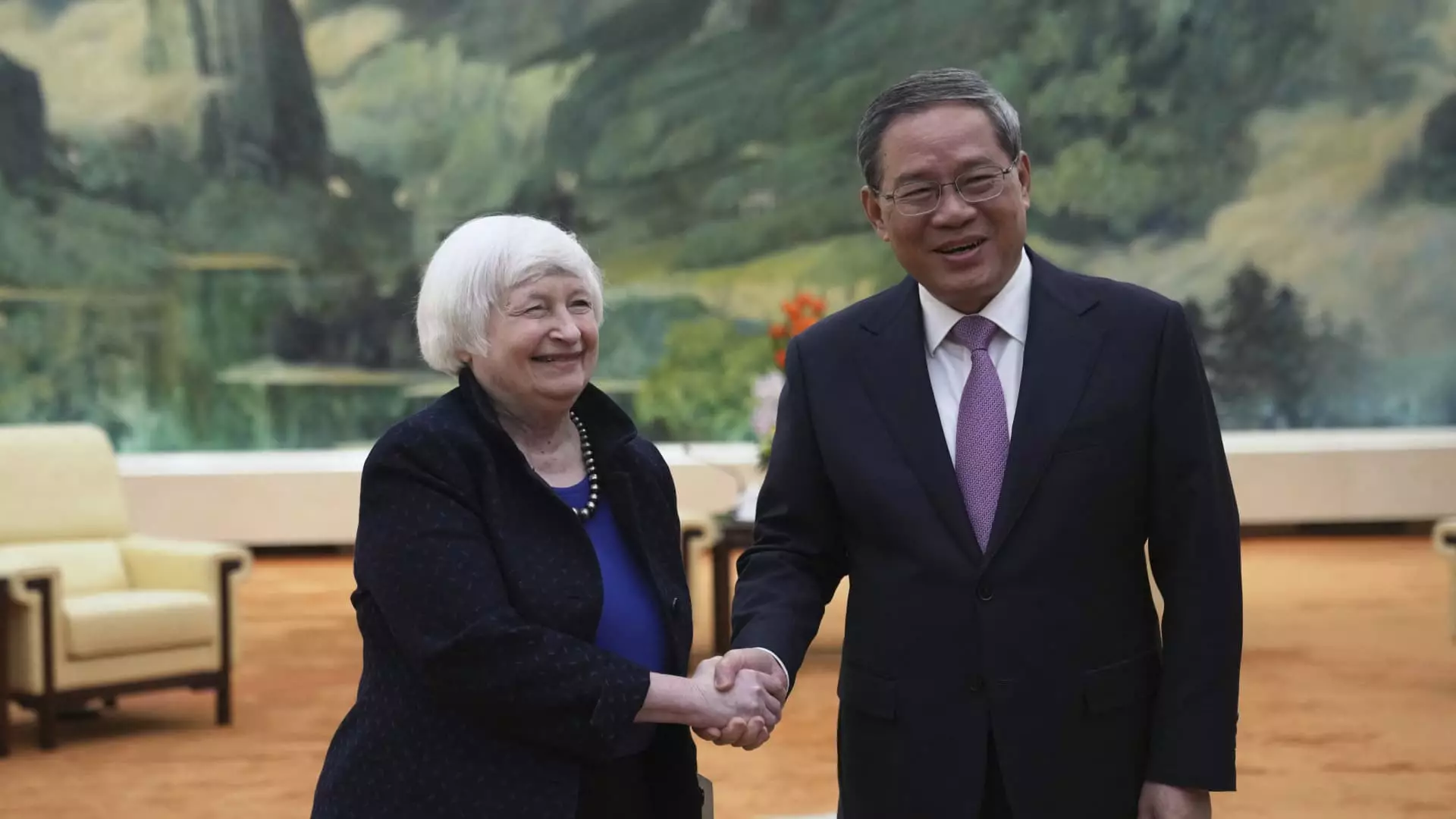The recent meeting between U.S. Treasury Secretary Janet Yellen and Chinese Premier Li Qiang highlighted the significance of having difficult conversations in maintaining stable relations between two economic giants. Yellen emphasized the need for open communication and mutual respect, acknowledging the differences that exist between the two countries. This approach, although commendable, raises questions about the effectiveness of such dialogues in addressing complex issues such as China’s excess factory capacity.
Challenges in Managing the Bilateral Relationship
Yellen’s focus on China’s production of electric vehicles (EVs) and other clean energy products reflects the ongoing challenges in managing the economic relationship between the United States and China. While efforts have been made to normalize bilateral economic relations, tensions remain high due to a range of issues, including trade disputes and geopolitical conflicts. The threat of excess manufacturing capacity in China poses a significant hurdle to achieving balanced growth and fair competition in the global market.
As the world’s two largest economies, the United States and China have a responsibility to not only manage their complex relationship but also to address pressing global challenges. Yellen’s advocacy for a level playing field with China is crucial for protecting American workers and businesses, but it remains to be seen whether such efforts will lead to tangible outcomes. The Economist Intelligence Unit’s forecast of China’s battery manufacturing capacity exceeding demand by 2027 raises concerns about the sustainability of China’s industrial growth and its implications for global trade dynamics.
Chinese state media’s response to Yellen’s concerns about excess capacity in the clean energy sector highlights the divergent perspectives on economic policies and protectionism. The narrative presented by Xinhua, criticizing Yellen for promoting protectionist policies under the guise of tackling overcapacity, underscores the challenges of bridging the gap between competing national interests. The hope for greater cooperation and mutual benefit expressed by Xinhua signals a desire for constructive dialogue, but the underlying tensions between the U.S. and China are likely to persist.
In light of the complex landscape of U.S.-China relations, it is essential for both countries to engage in transparent and constructive dialogues that address underlying economic concerns while fostering cooperation on global issues. Yellen’s efforts to encourage balanced growth and fair competition are commendable, but they must be supported by concrete actions and sustained engagement from both sides. The future of U.S.-China relations hinges on the ability of policymakers to navigate the challenges of a changing global economy and to find common ground on shared interests.


Leave a Reply